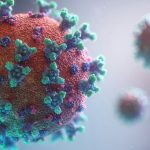In a recent court filing, former President Donald Trump’s legal team disputed special counsel Jack Smith’s claims that presidents can be prosecuted for criminal offenses. As the former president seeks to have his election subversion case dismissed, his defense attorneys argued that Smith’s interpretation of presidential immunity is too narrow.
Trump makes final pitch to appeals court in bid to dismiss Jan. 6 case https://t.co/Jfgg44OAHW https://t.co/Jfgg44OAHW
— Washington Examiner (@dcexaminer) January 3, 2024
The next step in the appeals process will be a hearing before a three-judge panel, which includes two appointees of President Joe Biden and one appointee of former President George H.W. Bush. Trump’s and Smith’s arguments will be thoroughly debated during this upcoming hearing, as both parties have filed written arguments in advance.
Smith’s prosecutors have accused Trump of making “sweeping immunity claims” that threaten to enable presidents to commit crimes to remain in office, and have emphasized that the Founders would never have condoned such an outcome. On the other hand, Trump’s defense team asserts that the Constitution vests executive power exclusively in the President, and therefore, courts should not set limits on it.
Trump’s plea of not guilty to the charges brought against him by Smith, and his assertion that the actions referenced in the indictment were within the “outer perimeter” of his official duties as president, are at the heart of the legal debate. Furthermore, Trump claims that being prosecuted for the same actions in the impeachment proceedings would amount to double jeopardy.
The scope of a president’s immunity from criminal prosecution is a key topic of debate, with prosecutors cautioning that Trump’s broad immunity theory could have sobering implications. However, Trump’s attorneys argue for a broad immunity scope to encompass all work falling within the “outer perimeter” of a president’s official duties, and they point out omitted information in Smith’s charges, including Trump’s encouragement of “peaceful” protesting on Jan. 6 and genuine concerns about the 2020 election results.
With U.S. District Judge Tanya Chutkan putting the case on hold while the appellate court weighs Trump’s arguments, the trial scheduled to begin in March is likely to be delayed. The appeals process is set to play out further, and the exact timing of the next steps remains unclear.




